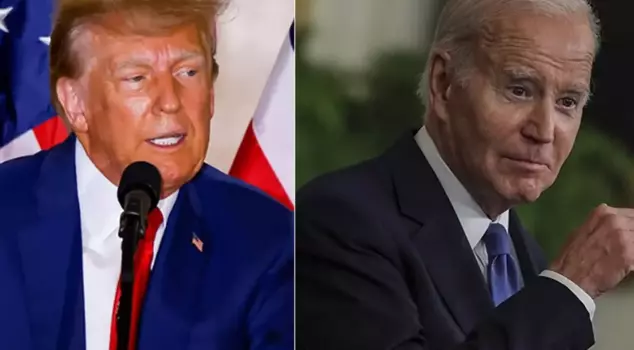
21.12.2024 22:10
U.S. President Joe Biden signed a temporary budget bill to prevent the federal government from shutting down, providing funding to the government until March 14 following discussions in Congress.
There was a crisis in budget negotiations due to Trump's opposition, and the Federal Government was at risk of shutting down. President Joe Biden signed the temporary budget proposal sent to him by Congress, which would prevent the federal government from shutting down.
According to a written statement from the White House, Biden enacted the temporary budget proposal that provides funding for the federal government until March 14. The signing of the proposal, which caused significant debates between Republicans and Democrats and was approved in the House of Representatives and the Senate just hours before the government was set to shut down, averted a potential budget crisis at the last minute.
TRUMP'S OPPOSITION CAUSED A CRISIS IN BUDGET NEGOTIATIONS
The U.S. Congress had approved the first temporary budget proposal aimed at preventing the government from shutting down due to funding shortages for the fiscal year 2025, which began on October 1, in September. The temporary budget, signed by U.S. President Joe Biden, was intended to provide funding for the government until December 20. With only a few days left until this date, Republicans and Democrats had reached an agreement earlier in the week on a budget proposal that would provide funding for the government until March. However, Trump opposed the agreed-upon temporary budget, calling it "ridiculous and extraordinarily expensive," and urged Congress members to reject the proposal. The first critic of the budget proposal was Elon Musk, whom Trump had appointed to lead the Government Efficiency Department. Musk stated, "No legislation should pass Congress until Trump takes office on January 20."
THE BUDGET PROPOSAL FAILED TO PASS IN THE HOUSE OF REPRESENTATIVES
As budget negotiations in Congress intensified due to Trump's opposition, a proposal that aimed to provide funding for the government until March and suspend the debt ceiling for two years was put to a vote. This proposal, which was also supported by the elected president Trump, was rejected in the U.S. House of Representatives on Thursday evening. The proposal did not receive support from some Republicans as well as Democrats.
WHAT DOES IT MEAN FOR THE FEDERAL GOVERNMENT TO SHUT DOWN?
According to American law, if Congress fails to approve the budget for the entire fiscal year, which starts on October 1 and ends on September 30, on time, the period until this happens must be covered by temporary budgets. During periods when the budget is not approved, the federal government loses its spending authority and must suspend all activities except for essential services. During this process, public employees working in non-essential services are placed on mandatory leave, while public employees such as those in the U.S. military, intelligence agencies, doctors and nurses in public hospitals, airport security personnel, and prison guards continue their duties. These employees, categorized as "essential personnel," generally do not receive their salaries during shutdown periods until Congress passes a new budget.